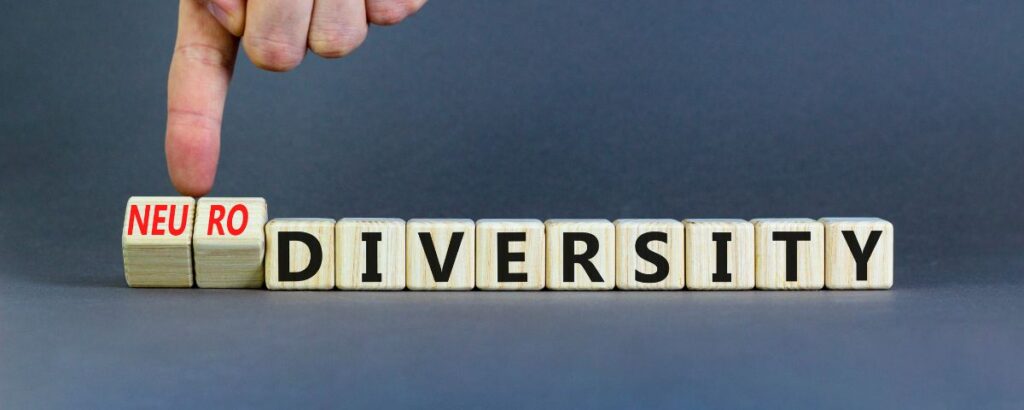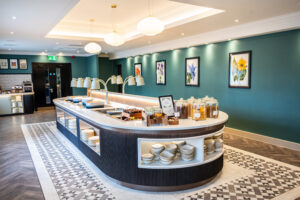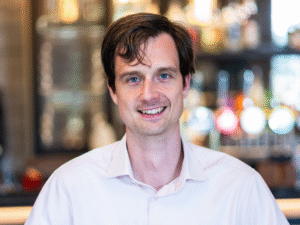
Planning events for neurodiverse audiences
Following the recent Neurodiversity Celebration Week and World Autism Acceptance Week, we have learned that neurodiversity has a particular significance for event planners. Here we look at how organisers can consider event content and spaces from a more inclusive perspective.
What would you say if you knew that up to 20 per cent of your potential delegates would choose not to attend your conference because they couldn’t face the ordeal of participating? “Surely not!” might be your response, but there are now statistics that bear out this statement.
Neurodiversity is an umbrella term covering a range of conditions – including obsessive compulsive disorder (OCD), autism spectrum disorders, dyslexia and attention deficit hyperactive disorder (ADHD). As many as 20 per cent of the UK adult population have been diagnosed with one or more of these neurological conditions. And diagnosis doesn’t necessarily occur in childhood: TV presenter Melanie Sykes was diagnosed as autistic last year – at the age of 51. Many people may not even know that they are neurodiverse; they just repeatedly find themselves thinking and responding differently to the people around them.
The neurodiverse experience
Having a neurological condition certainly doesn’t prevent people from being highly competent and valued team members, in fact, research has shown that when the right support is in place, neurodiverse teams are 30 per cent more productive than others. But certain situations – including large events – produce exactly the kind of conditions that can make neurodiverse people feel hyper-stressed and overwhelmed.
Their anxiety may be compounded by difficulty in concentrating. Social interaction and the need to make small talk at networking events can be challenging under these conditions. According to Dr Sarah Lister Brook, Clinical Director at the National Autism Society, autistic people may have difficulty interpreting both verbal and non-verbal language. It’s fair to say that neurodiverse individuals can experience conferences in ways that will differ strongly from their neurotypical colleagues.
EventWell is the event industry’s ‘place to go’ for mental health and neuroinclusion. Its Chief Executive, Helen Moon, herself a neurodiversity expert, says that in extreme cases, event attendees have panic attacks or feel the need to leave the building to get away from bright lights and noisy, frenetic environments.
It’s hardly surprising, therefore, that some people will avoid attending large events altogether, fearing the experience will prove to be too much for them.
How can event planners make conferences more neuroinclusive?
We can start by listening to people who can explain their neurodiverse experience and planning our events with their challenges in mind. Some organisers have gone one step further and incorporated the topic into their conference agenda – inviting a neurodiverse speaker to contribute to the event’s programme so that the entire audience can be helped to better understand that we all have unique minds, working in their own individual way.
The traditional ice breaker activity that starts an event could be replaced by the audience taking a collective pause to go through some breathing exercises. Not only will these focus everyone’s mind, bringing them to the present moment, but they will instantly defuse anxiety and set a more mindful tone for the day ahead.
Restorative event spaces
Neurodiverse individuals – and indeed anyone feeling stressed and overwhelmed, will benefit from access to a safe, relaxing environment that has been designed specifically to help people calm their frazzled nerves and decompress from the aural and visual noise in the surrounding area.
EventWell can provide quiet rooms, wellbeing hubs and support areas at events to help stressed attendees take time out to recover from sensory overload. We at The Venues Collection have been working for some time to facilitate mental wellbeing at the events we host. Our buildings offer get-away-from-it-all rooms that can become peaceful sanctuaries. All of our properties feature gardens or green spaces where delegates can reconnect with nature, calming the adrenalin and lowering raised heart rates triggered by stress.
The teams at TVC properties are dedicated to creating happy, healthy and restorative event spaces that promote a sense of wellbeing and give speakers, attendees and organisers the best chance of positive engagement. So, for more ideas on planning the optimum event experience for all your delegates, speak to our sales team: enquiries@thevenuescollection.co.uk
Go back to other articles

